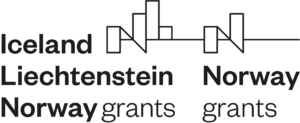Our goal
We want to create a clear interpretation of the rules for donating cooked meals and simplify the whole process. Non-served portions that are thrown away in canteens after the end of opening hours can feed a lot of people in need. In addition, the donation of these portions uses the energy and money that has been put into the preparation of meals.
Nowadays, the donation of leftover food is very confusing and complicated for businesses due to disunited information on hygiene requirements and legislative rules. To avoid possible problems, businesses prefer to throw away the food.
The project Donation of food saves the climate runs from 1 April 2020 to 31 March 2022.
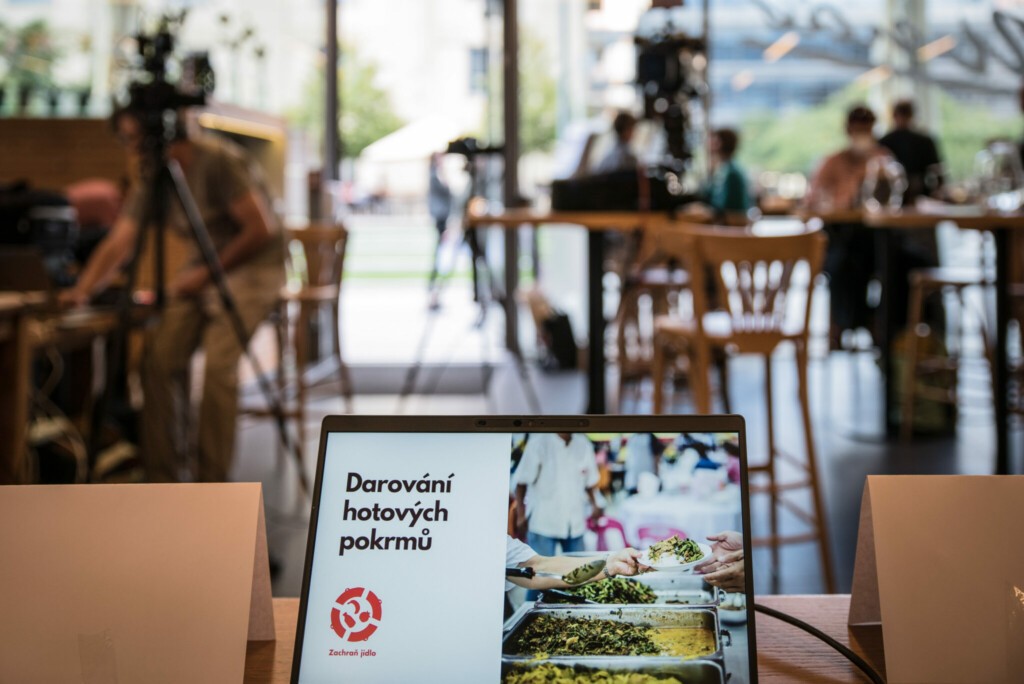
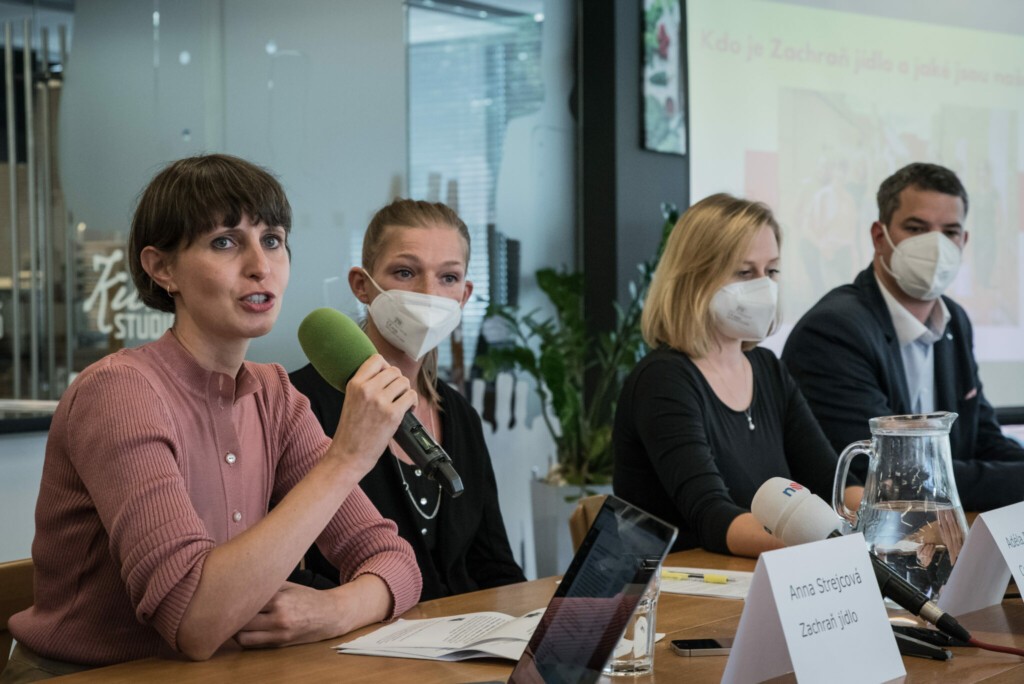
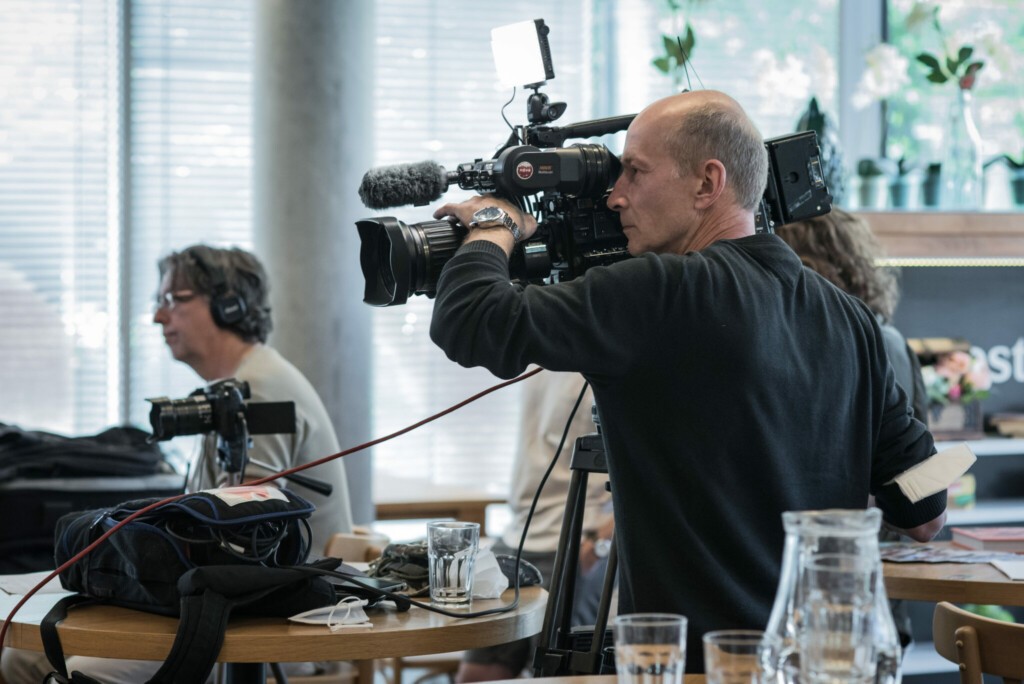
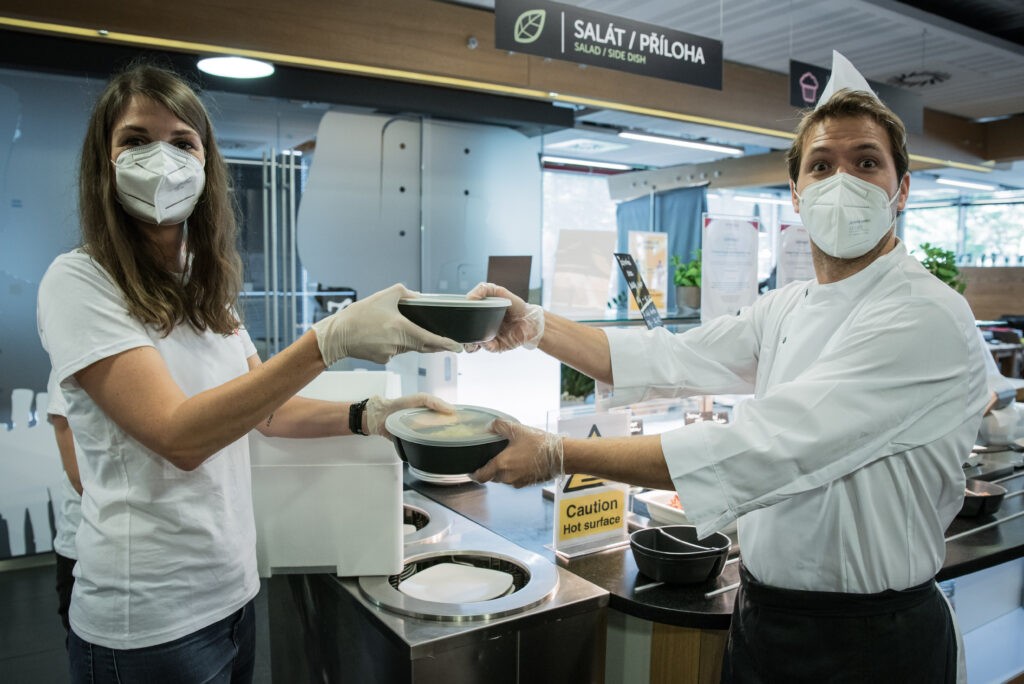
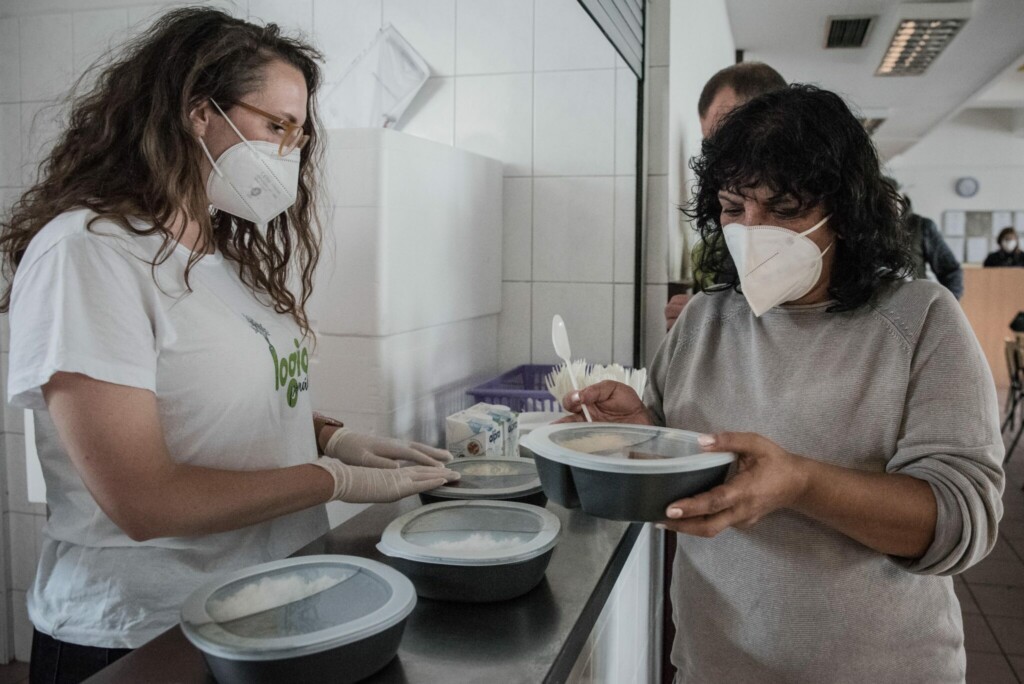
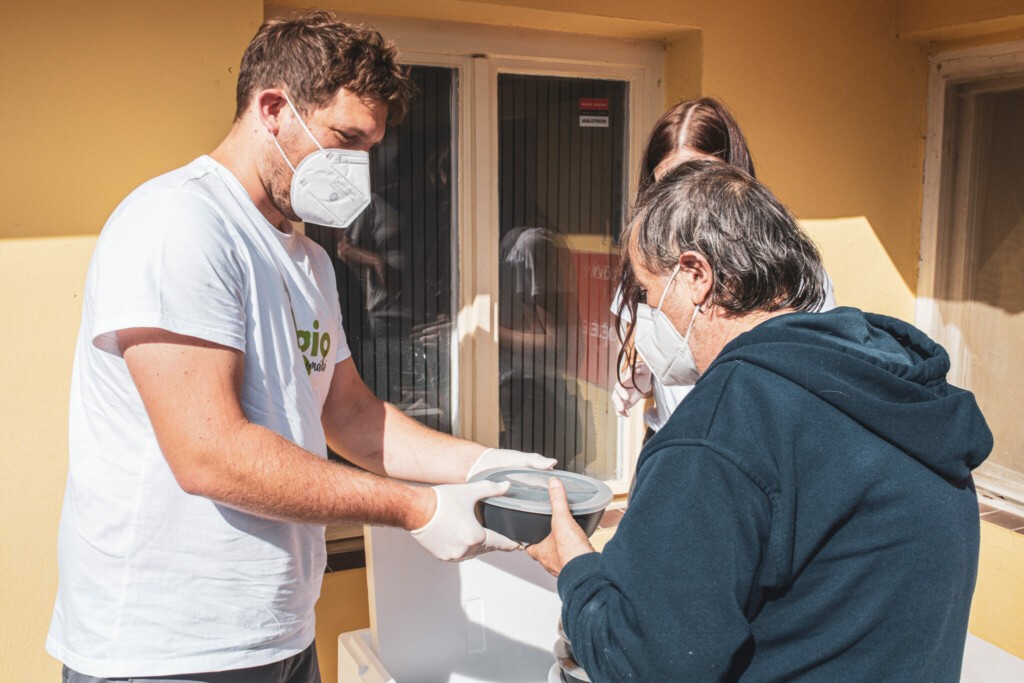
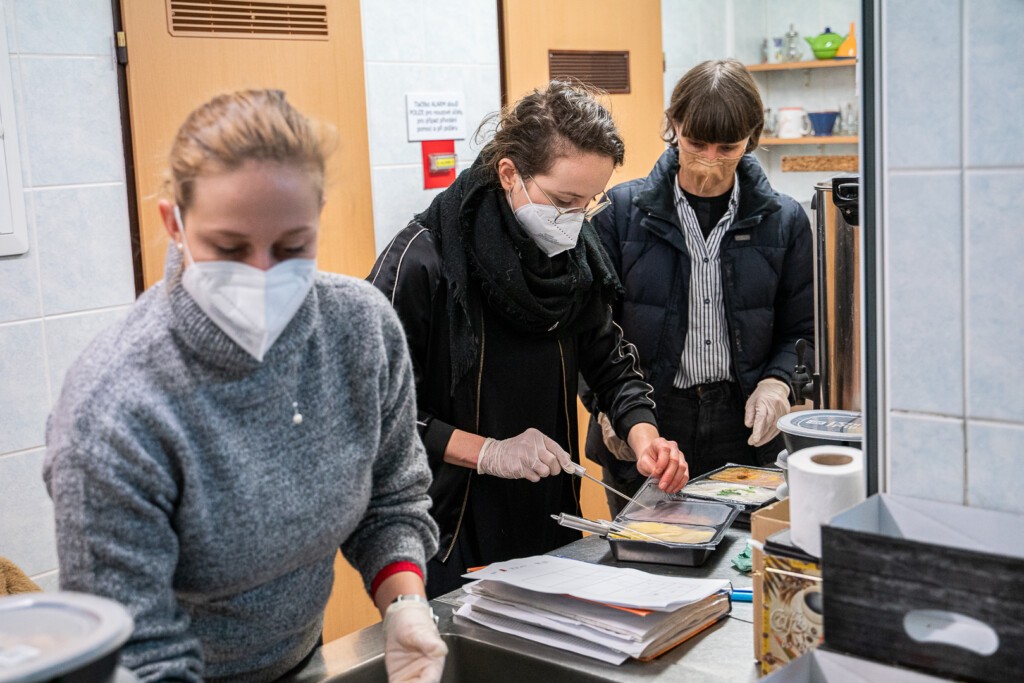
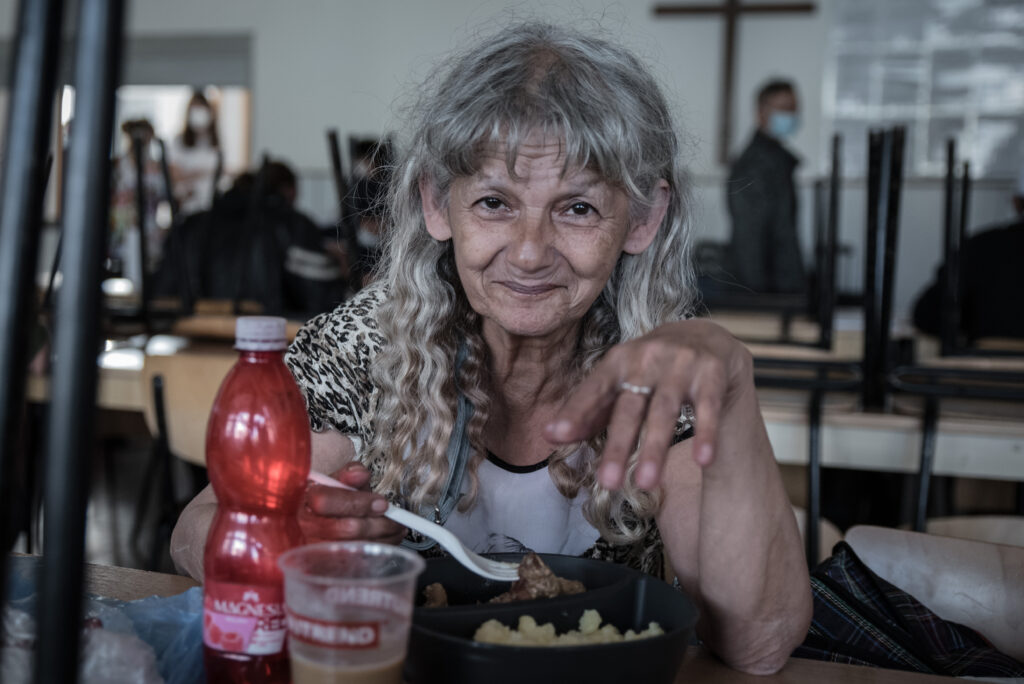
What we are working on
1.
We mapped the terrain
In order to change the system, we must first get to know it in detail. That’s why we have written a comprehensive document Donating Ready Meals – Analysis of the Current Situation and Examples of Good Practice.
2.
We had a press conference
On Thursday 2 September, we presented the project Donating Food Saves the Climate at a press conference together with our guests. We held it directly in one of the factory canteens and invited representatives of the logistics company Logio and representatives of the factory catering company Compass Group.
3.
We held a fundraiser
We want donating ready meals to be a common practice in the Czech Republic. That’s why we launched a fundraiser to support the project and raised over CZK 220,000 for a pilot project that tested donation on a larger scale.
4.
We completed a pilot project
We tried out how donation could work in practice. We measured temperatures, tracked time, tried different kinds of containers.
5.
Finalizing the manual
We will provide charities and canteens with detailed and practical guidance on how to donate. We open up all the important topics such as VAT, legal liability, logistics and hygiene regulations. It will be ready in March.
6.
Preparing the final meeting
What all had to happen to make the manual? How will it help charities and canteens? We will summarise this at an online press conference on 16 March. We will publish more information soon.
Fastfood outlets and canteens throw away around 4000 tonnes of hot food a year
The project is supported by:
„Most of us don’t give much thought to the fact that we have the opportunity to have a hot meal every day. But thanks to my work in our Canteen, I know how many people nowadays don’t have the luxury of a hot, fresh meal. That’s why I see it as an important step to make donating food from public catering a common practice.“
Veronika Zerzánová, Homeless Cooks‘ Canteen
„Even though we carefully plan the number of portions we have to cook every day, it is impossible to estimate exact numbers. The best way not to waste food is not to create surpluses. We always keep that in mind. However, if there is food left over, we are happy when we can use our food to help.“
Filip Sajler, Perfect Canteen
„Shelter clients often have no finances and cannot even buy food to cook a full meal for themselves or their children. Donating cooked meals would help them provide the basic necessities of life, help families in financial need eat better quality meals, and support the healthy growth and development of their children.“
Martina Majerová, Šromova Asylum House
„We do everything we can to ensure that as little of this waste as possible is generated. Nevertheless, the scale of the menu and our aim to always satisfy the guests‘ requirements create the possibility of a certain amount of dishes that don’t sell. The option to donate these dishes seems logical and right to us, and we believe that no food should end up in the bin.“
Petr Brož, Compass Group
„We have a kitchen in the shelter where clients can prepare a hot meal. However, there are also those who cannot cook and the only hot food for them is instant soup or warmed sausages. Many of our clients also have major health problems because of the poor quality and unhealthy diet. We would be very grateful for our clients if food donation would take off.“
Markéta Lietavcová, Dům Naděje Praha – Radotín
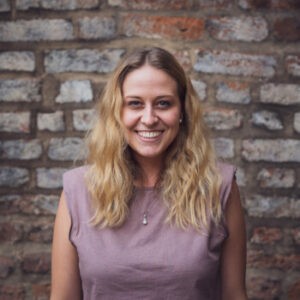
Denisa Rybářová
Denisa Rybářová
Project support
The project is being supported by the Open Society Fund Prague from the Active Citizens Fund. The programme promotes citizens’ active participation in the public life and decision making and builds capacities of civil society organizations. It promotes respect of human dignity, freedom, democracy, equality, the rule of law and the respect for human rights including the rights of persons belonging to minorities.
Active Citizens Fund came to the Czech Republic in September 2019 with the goal to support CSOs regardless of their size and experience. It is operated by the Open Society Fund Prague, Committee of Good Will – the Olga Havel Foundation and Scout Institute. The Active Citizens Fund is financed from EEA and Norway Grants 2014–2021. With EEA Grants, Iceland, Liechtenstein and Norway contribute towards a reduction in economic and social disparity and the strengthening of mutual cooperation in Europe. One of the important objectives of the programme is strengthening bilateral cooperation between donor and beneficiary states through financial contributions in specified priority sectors. It supports bilateral relations between the donor states Norway, Iceland, and Liechtenstein and the Czech Republic.
